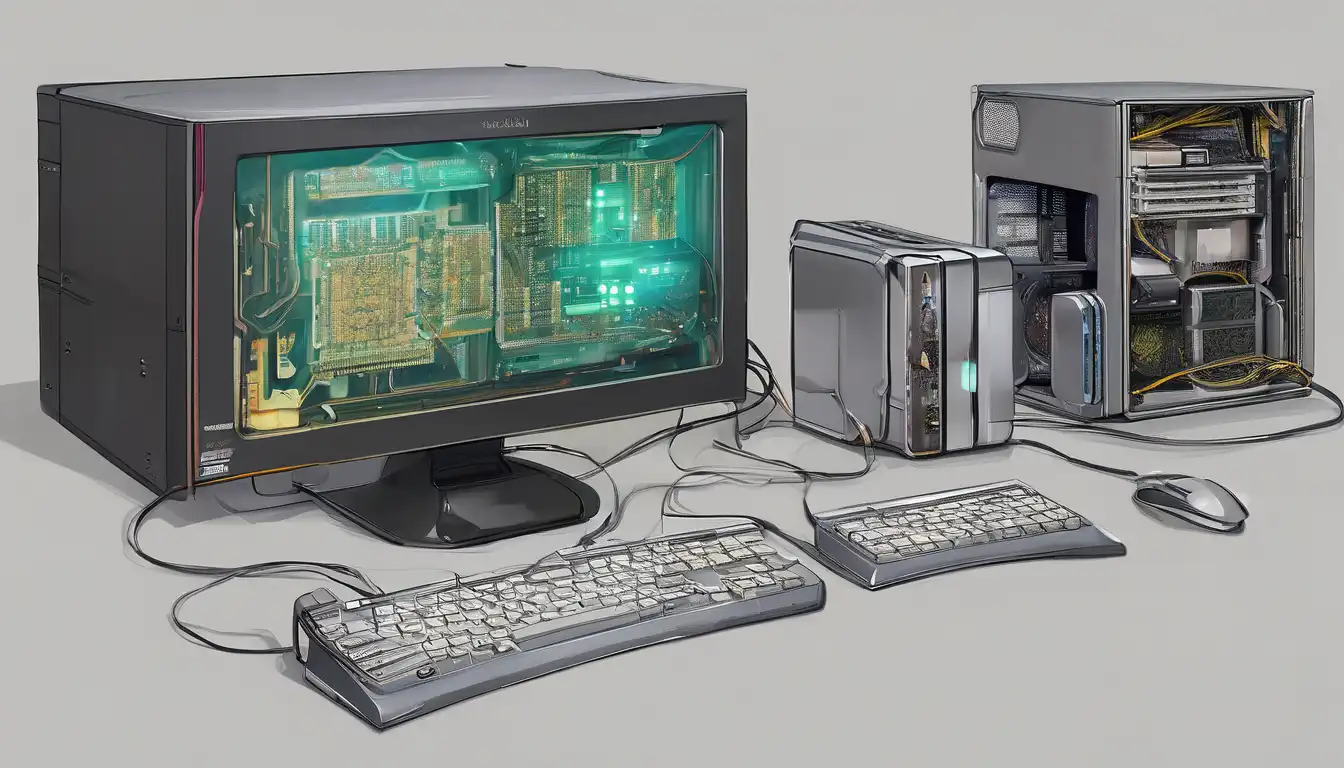Revolutionary Advances in Computer Hardware Technology
The landscape of computer hardware is undergoing unprecedented transformation, with innovations emerging at an accelerated pace. From quantum computing breakthroughs to AI-optimized processors, the latest developments are reshaping how we interact with technology. These advancements not only enhance performance but also redefine the boundaries of what's possible in computing.
Next-Generation Processors and CPU Architecture
Modern processors are evolving beyond traditional multi-core designs. The latest CPUs incorporate specialized AI accelerators, improved power efficiency, and revolutionary architectures that dramatically boost performance. Companies like Intel and AMD are pushing the boundaries with chips featuring:
- 3D stacking technology for increased transistor density
- Dedicated AI processing units integrated directly into CPUs
- Advanced power management systems reducing energy consumption by up to 40%
- Heterogeneous computing architectures optimizing different workloads
These innovations enable faster data processing while maintaining thermal efficiency, making them ideal for both consumer and enterprise applications. The integration of machine learning capabilities directly into processor architecture represents a significant leap forward in computational intelligence.
Graphics Processing Units: Beyond Gaming
GPUs have transcended their gaming origins to become essential components in scientific research, artificial intelligence, and creative industries. The latest GPU innovations include:
- Real-time ray tracing capabilities for photorealistic rendering
- Tensor cores optimized for deep learning applications
- Multi-chip module designs enabling unprecedented parallel processing
- Advanced cooling solutions supporting higher clock speeds
These developments make modern GPUs indispensable for AI training, data analysis, and complex simulations. The evolution of graphics technology continues to push the boundaries of visual computing and computational power.
Memory and Storage Revolution
The memory and storage sectors are experiencing revolutionary changes with new technologies offering unprecedented speed and capacity. Key innovations include:
- DDR5 memory delivering double the bandwidth of previous generations
- PCIe 5.0 interfaces supporting faster data transfer rates
- 3D NAND flash technology enabling higher storage densities
- Optane memory bridging the gap between RAM and storage
These advancements significantly reduce loading times and improve system responsiveness across all applications. The integration of intelligent memory management systems further optimizes performance for specific workloads.
Quantum Computing Hardware Breakthroughs
Quantum computing represents the frontier of hardware innovation, with recent developments bringing practical quantum applications closer to reality. Significant progress includes:
- Increased qubit stability and coherence times
- Error correction algorithms improving computational accuracy
- Cryogenic cooling systems enabling stable quantum operations
- Hybrid quantum-classical computing architectures
While still in early stages, these innovations demonstrate the potential for quantum computing to solve complex problems beyond the reach of classical computers. The hardware advancements in this field are laying the foundation for future computational paradigms.
Cooling and Power Management Innovations
As hardware becomes more powerful, thermal management and energy efficiency have become critical focus areas. Recent innovations include:
- Liquid cooling systems with improved efficiency and reliability
- Phase-change materials for enhanced heat dissipation
- AI-powered thermal management systems
- Advanced power delivery networks optimizing energy consumption
These technologies ensure that high-performance hardware operates within optimal temperature ranges while minimizing energy consumption. The integration of smart cooling solutions represents a significant step toward sustainable computing.
Connectivity and Interface Advancements
Modern hardware requires advanced connectivity solutions to support increasing data demands. Key developments include:
- Wi-Fi 6E and upcoming Wi-Fi 7 standards
- Thunderbolt 4 providing universal connectivity
- USB4 delivering faster data transfer speeds
- Optical interconnects for high-speed data transmission
These connectivity innovations ensure seamless integration between components and peripheral devices, supporting the growing demands of data-intensive applications and emerging technologies.
Future Trends and Emerging Technologies
The hardware innovation landscape continues to evolve with several promising technologies on the horizon:
- Neuromorphic computing chips mimicking brain architecture
- Photonic computing using light instead of electricity
- Biodegradable and sustainable hardware materials
- Integrated quantum-dot displays and sensors
These emerging technologies promise to redefine computing paradigms and create new possibilities for hardware development. The continuous innovation in computer hardware ensures that technology will continue to advance at an exponential rate.
The latest innovations in computer hardware technology demonstrate remarkable progress across all components. From processors and memory to cooling systems and connectivity, each advancement contributes to more powerful, efficient, and intelligent computing systems. As these technologies mature and converge, they will enable new applications and capabilities that were previously unimaginable, driving innovation across all sectors of technology and society.
